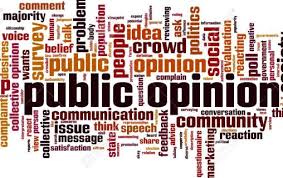In today’s fast-paced media landscape, consumers are bombarded with countless messages daily. It is no surprise therefore that brands struggle to capture attention and build loyalty. The missing ingredient is authentic storytelling.
This realization has helped authentic storytelling emerge as a powerful tool for public relations (PR). Rather than rely solely on advertising or promotional tactics, PR professionals increasingly use storytelling to forge emotional connections and build trust with their audiences.
Authentic storytelling is about conveying experiences and values that resonate with audiences in a meaningful way. It goes before crafted messages. It goes into the truth of what a brand stands for. Nigerian consumers are highly perceptive; they value transparency and narratives that align with their realities.
Now, authentic stories reveal the “why” behind a brand. It unveils its purpose, vision and the impact it aims to create. For many Nigerian companies, this means addressing local challenges or contributing to societal development in ways that reflect their audiences’ daily lives and aspirations.
Why is storytelling now critical in public relations? Four reasons stand out:
- Building Trust in a Distrustful Society
In Nigeria, as in many countries worldwide, trust in institutions, whether public or private, business or nonprofit, is often low. This can be due to issues around misinformation or corruption. Authentic storytelling provides an opportunity for brands to build credibility by being transparent and relatable.
For instance, Access Bank’s “W Initiative”, which shares stories of Nigerian women entrepreneurs overcoming challenges with the bank’s support, has successfully promoted trust among its target audience. By amplifying real-life experiences, Access Bank positions itself as a partner in progress for women in business.
- Promoting Emotional Connections
Nigerians are deeply emotional and value connections that reflect their culture, values and aspirations. Stories that touch on shared experiences or evoke a sense of community resonate more strongly.
The popular MTN Nigeria “Mama Na Boy” advert is a classic example of storytelling that connects emotionally. It portrays the joy of communication during a significant family moment, in this case, the birth of a child. This is a universal theme to which Nigerians can relate. It wasn’t just about selling airtime; it was about celebrating connections, a core aspect of Nigerian culture.
NB: I’m aware it later generated undeserved controversy.
- Cutting Through the Noise
Nigeria’s media space is saturated with advertisements, influencer promotions and corporate messaging. Authentic storytelling offers a way out by engaging audiences rather than simply selling to them.
For example, Guinness Nigeria’s “Made of Black” campaign used storytelling to celebrate the boldness and creativity of young Nigerians. The campaign leveraged real stories to celebrate challenging stereotypes and breaking barriers, making it relatable and inspiring.
- Showcasing Brand Purpose
Modern Nigerian consumers expect brands to contribute positively to society. Storytelling allows organisations to communicate their purpose and social impact.
Consider, Dangote Group. The firm regularly shares stories about its corporate social responsibility (CRS) initiatives, such as building schools and hospitals in underserved communities. By highlighting these efforts, Dangote demonstrates its commitment to nation-building and reinforces its position as a socially responsible brand.
For stories to work, they must be:
Authentic: Nigerians value honesty. Overhyped or exaggerated stories can backfire.
Culturally Relevant: The best stories reflect Nigerian realities, traditions and values.
Emotionally Engaging: Narratives that evoke pride, hope, or nostalgia resonate strongly.
Visually Rich: Nigerians are avid consumers of visual content, making videos, infographics and photos essential to effective storytelling.
The best part is that authentic storytelling can be integrated into various PR channels.
Press Releases: Share impactful stories about how the brand’s products or services are improving lives. For instance, fintech like Flutterwave could highlight how its platform helps small businesses in remote areas access global markets.
Social Media: Platforms like Instagram, Twitter, and TikTok are ideal for sharing behind-the-scenes stories, testimonials and user-generated content. Brands like GiG Logistics have used Instagram to tell stories of businesses thriving with their support.
Events: Nigerian events often feature storytelling to engage audiences. A company launching a new product could use customer success stories to create a deeper connection.
Media Relations: Journalists in Nigeria appreciate stories with a human angle. Providing relatable narratives increases the likelihood of media coverage.
Despite technological advancement, PR remains fundamentally about people. Authentic storytelling ensures that even in an increasingly automated world, the human element remains central to brand communication. Nigerian audiences, who value relationships and shared experiences, are particularly receptive to storytelling.
Storytelling is not just a buzzword; it is the future of PR in Nigeria. By focusing on authenticity, brands can build trust, promote emotional connections, and distinguish themselves in a competitive market. In the hands of skilled PR professionals, authentic storytelling can reshape perceptions, build enduring relationships, and drive meaningful impact.




